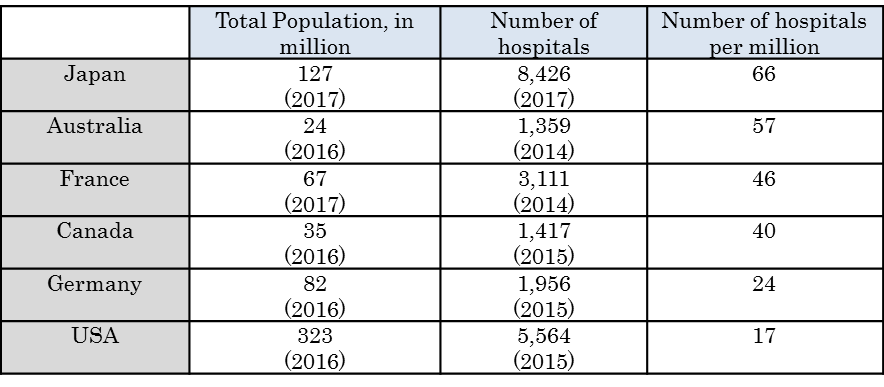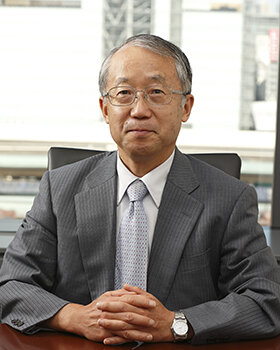Column Finance and the Social Security System 2017.12.28
【Aging, safety net and fiscal crisis in Japan】No.3: Overinvestment in medical care
In Japan, the medical fee table of medical institutions is revised every two years. In December 2017, it was decided to increase the rates by 0.55% in April 2018. There is an official committee called the Central Social Insurance Medical Council that decides the validity of the rates in the medical fee table. However, the upward revision of 0.55% was taken after negotiations between the Minister of Finance and the Minister of Health, Labor and Welfare, without it being discussed and approved by the council. In other words, the financial resources for medical care can be determined politically in Japan without any economic rationale. This means that the reform of the structural problem of overinvestment in medical care has been postponed despite the country facing a fiscal crisis.
As Table 1 shows, Japan stands out in terms of the number of hospitals per unit population. Moreover, even among the national hospitals, public hospitals, and hospitals affiliated to national universities in the same medical market, no sharing of services has been done. According to data from the Ministry of Health, Labor and Welfare, the number of CT scans per one million population is 101.3, which is more than four times the average of 24.6 in the OECD countries. Similarly, the number of MRI scans is 46.9, which is also well above the OECD countries average of 14.3. In Japan, even clinics have CT and MRI facilities. In other words, excessive financial resources are supplied to manage medical institutions even if it leads to massive overinvestment.

Note. The years to which the data correspond are given in parentheses
